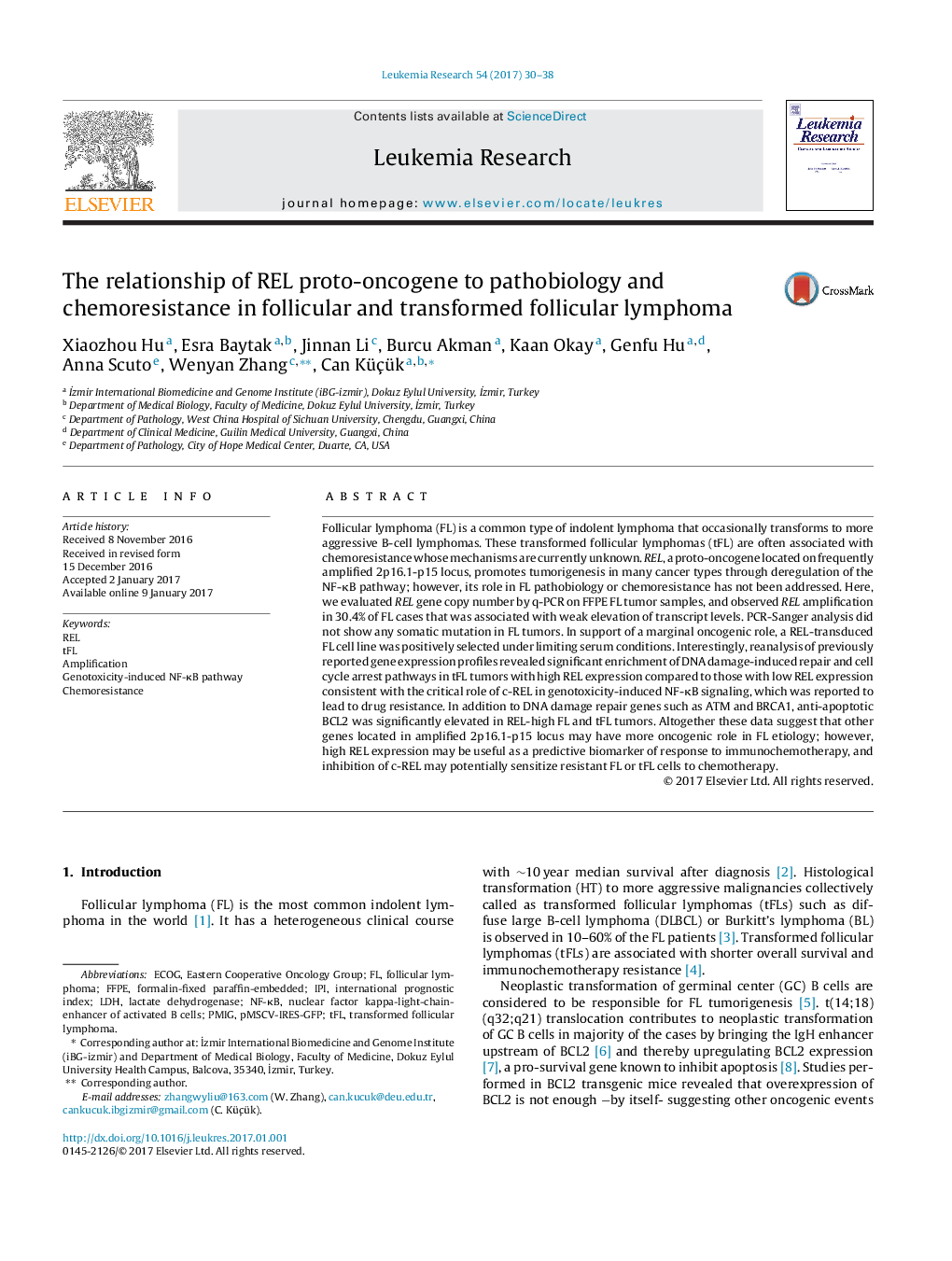| Article ID | Journal | Published Year | Pages | File Type |
|---|---|---|---|---|
| 5527804 | Leukemia Research | 2017 | 9 Pages |
â¢REL is frequently amplified in follicular lymphoma (FL) cases.â¢No mutations of REL were detected in its conserved coding sequences in FL cases.â¢Ectopic REL marginally promotes growth in an FL cell line in low-serum medium.â¢REL-high tFL cases are associated with genotoxicity-induced NF-κB pathway.â¢REL expression levels may predict response to chemotheraphy in FL and/or tFL cases.
Follicular lymphoma (FL) is a common type of indolent lymphoma that occasionally transforms to more aggressive B-cell lymphomas. These transformed follicular lymphomas (tFL) are often associated with chemoresistance whose mechanisms are currently unknown. REL, a proto-oncogene located on frequently amplified 2p16.1-p15 locus, promotes tumorigenesis in many cancer types through deregulation of the NF-κB pathway; however, its role in FL pathobiology or chemoresistance has not been addressed. Here, we evaluated REL gene copy number by q-PCR on FFPE FL tumor samples, and observed REL amplification in 30.4% of FL cases that was associated with weak elevation of transcript levels. PCR-Sanger analysis did not show any somatic mutation in FL tumors. In support of a marginal oncogenic role, a REL-transduced FL cell line was positively selected under limiting serum conditions. Interestingly, reanalysis of previously reported gene expression profiles revealed significant enrichment of DNA damage-induced repair and cell cycle arrest pathways in tFL tumors with high REL expression compared to those with low REL expression consistent with the critical role of c-REL in genotoxicity-induced NF-κB signaling, which was reported to lead to drug resistance. In addition to DNA damage repair genes such as ATM and BRCA1, anti-apoptotic BCL2 was significantly elevated in REL-high FL and tFL tumors. Altogether these data suggest that other genes located in amplified 2p16.1-p15 locus may have more oncogenic role in FL etiology; however, high REL expression may be useful as a predictive biomarker of response to immunochemotherapy, and inhibition of c-REL may potentially sensitize resistant FL or tFL cells to chemotherapy.
